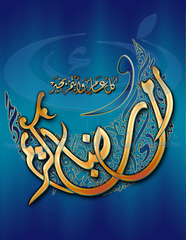WESTERN WOMEN RISING FORCE AMONG ISLAM'S CONVERTS
Islam finds Western women to be rising force among converts
Muslims say the religion is more forward-thinking on gender than many Western traditions, writes Michael PaulsonBoston Globe, May19,2001.
Sara Graziano's father was a lapsed Catholic, her mother an active Pentecostal, and she was confused. So at 14, she dragged herself to the library and began reading about Buddhism, Hinduism, Judaism and Islam.She found herself drawn to Islam. This year, she recited one sentence - "I believe there is no god but God and that Mohammed is a messenger of God" - and became a Muslim.
"Christianity seemed like going to church once a week and trying to be a good person, but Islam is a complete way of life," she said.Ms Graziano, a university student, is part of a growing number of women embracing Islam.
In one mosque, the Islamic Society of Boston in Cambridge, they outnumber new Muslim men by as much as two to one.That trend runs counter to the national picture.
A recent survey by the Council on American-Islamic Relations found that two-thirds of new Muslims in the United States were male.
Women turning to Islam are aware that many cannot understand why any Western woman would choose a religion often depicted as oppressive of women.
But they insist that depiction is a false image perpetuated by the media, and that in fact Islam is more forward-thinking about gender than many Western traditions. As evidence, they note that Islam allowed women to own property and vote long before Western cultures.
In modelling a more egalitarian form of Islamic culture in the US than in some parts of the world, these women also say they may influence Muslims worldwide."Unfortunately, the way Islam is practised currently in some countries is not ideal," said Christina Safiya Tobias-Nahi, 30, who became Muslim six years ago.
"A lot of countries are looking to see how we practise it here, and we have the potential to be a really strong role model for men and women in other countries."These new Muslim women generally choose to cover their hair with a scarf, or hijab, to follow Muslim dietary laws that include prohibitions on pork and alcohol, and to pray five times a day.Many of their families are profoundly unhappy."When I got home ... my dad didn't want his other kids to see me in my hijab," Ms Graziano said.
On the other hand, "It's liberating because people don't look at you and think about your figure and your hairstyle, and guys don't look at you and think about making a pass at you.
"American Muslim women tend to view the subjugation of women in countries such as Afghanistan and Iran as aberrant examples of Islam.
They point to the fact that while no woman has been a serious contender for president of the US, Muslim women have led Bangladesh, Pakistan and Turkey and a Muslim woman is poised to become the next leader of Indonesia, the most populous Muslim country in the world.But there remain issues for women in Islam - as in every major world faith.Some are critical of traditional Islamic inheritance laws, which give short shrift to women, and some baulk at traditional Islamic dress, which requires women to cover their hair and wear loose, enveloping garments.Women in Islam can not lead men in prayer - a restriction similar to the ban on female clergy in Catholicism, Orthodox Christianity, Orthodox Judaism and Mormonism.
And in mosques, as in most Orthodox synagogues, women are separated from men during prayer, usually at the back of the mosque.Some Muslims have expressed concern that many mosques and Muslim advocacy groups have been slow to allow women to assume positions of leadership."There is an intellectual revolution taking place, as women are raising their voices and pointing to the Koran and demanding their rights," said Salam Al-Marayati, executive director of the Muslim Public Affairs Council.
"Our admonishment is that ... all barriers against women participating in organisations should be removed, because that participation is their God-given right."Women who become Muslim in the US offer a variety of explanations.
Many American women encounter Islam by meeting, and often dating, a Muslim man.Some are drawn to the spiritual mysticism of Islam, while others are attracted to the conservative family values and structure of Islam, according to Marcia Hermansen, a Muslim theologian at Loyola University in Chicago."In the nemillennium, conversion seems to be hip," she said.
Link: http://www.islamfortoday.com/americanmuslimwomen03.htm

1 comment:
To be fair, the media is horribly biased, but they broke the story of the Taliban to America. Before the story of the Taliban, most semi-educated Americans thought that Arab and Muslim were the same thing (images of Yasser Arafat being prominent in the minds of people raised in the 1970s and 1980s). Soon after we first hear about the Taliban, the US reporters get stories from women who suffered under the Taliban rule(no longer allowed to work, banned from going to school, forced to wear the full burkha). Suddenly, Taliban equated to Islam in the minds of the uneducated masses. Shortly thereafter, 9-11 happened. Yes, the media is very damaging to Islam but it's those people who do terrible things in the name of the name of Allah who get all of the media attention.
The articles you cite about Western women converting are quite biased. Western women converting to Islam are extremely rare.
Post a Comment